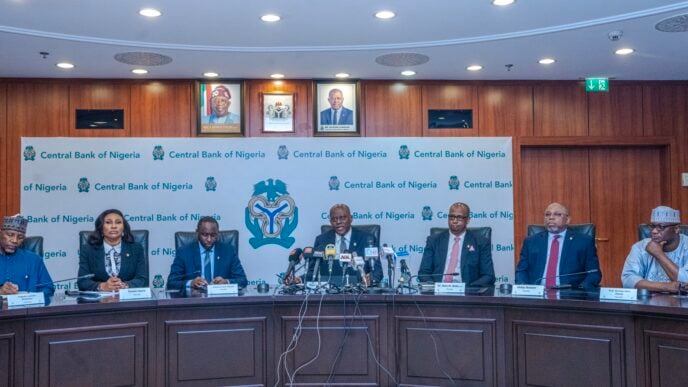BY OBIANUJU UZUKWU
In Nigeria’s media landscape, where scandals and conflicts often dominate the discourse, the substantial progress made by state governors in various sectors frequently goes unnoticed. This “conspiracy of silence” fosters a one-sided view of governance, emphasizing failures while side-lining successes in infrastructure, education, healthcare, and economic empowerment. Such selective reporting not only undermines public confidence but also discourages recognition of leaders who quietly drive change. Despite this, governors continue to achieve giant strides that benefit their citizens, often without the acclaim they deserve. This article explores this phenomenon, underreported examples and delving into broader contexts, including how states like Niger, Imo, Enugu are subtly leading in sector performance.
Amid the media’s focus on controversies, several governors have made remarkable, yet muted, contributions to their states’ development.
Governor Mohammed Umaru Bago of Niger State has led progressive changes in the education sector. Bago has spearheaded transformative initiatives, including widespread school renovations and teacher training programs that have boosted enrollment and literacy rates. His administration’s ongoing efforts, as noted in recent assessments, tell a story of commitment to long-term progress, yet these advancements receive minimal national coverage, overshadowed by broader national challenges.
Governor Peter Mbah of Enugu State has also been praised for his transformative leadership, Mbah has advanced infrastructure and economic policies that enhance urban development and job creation. Lawyers and stakeholders have commended his giant strides in governance, but media attention remains sparse, contributing to the narrative of under appreciation for effective state-level reforms. His Smart Green Schools initiative is geared towards enhancement of the learning environment for millions of youths in Enugu State.
Advertisement
Governor Mai Mala Buni of Yobe State governs in a region marked by past insecurity but how has now overseen significant recoveries in healthcare and agriculture, including the reconstruction of facilities and support for farmers. His administration’s resilience-building measures exemplify quiet achievement, though they are rarely highlighted in mainstream outlets, perpetuating the silence on positive northern developments.
To understand the depth of some governors’ contributions, particularly in workers’ welfare—an area where media silence is pronounced—it’s valuable to consider historical precedents globally and in Nigeria. The minimum wage concept originated in the late 19th century to address industrial exploitation, with New Zealand enacting the first national law in 1894 with the UK following shortly after while the US introduced a federal minimum in 1938 during the Great Depression. The International Labour Organization has since advocated for wages tied to living costs.
In Nigeria, minimum wage policies began formally in 1981 at ₦125 monthly, evolving through increases like ₦18,000 in 2011 and ₦70,000 in 2024, often amid economic pressures. These adjustments highlight the challenges of implementation, where state governors play a pivotal role in exceeding national benchmarks to support their workforce. Amid this history, states like Imo have subtly emerged as exemplars, with Governor Hope Uzodimma positioning himself as a silent achiever through policies that prioritize employee dignity. On August 27, 2025, Uzodimma approved a ₦104,000 minimum wage for Imo civil servants, surpassing the national ₦70,000 and making it the highest in Nigeria. This move, effective from August salaries, includes raises for doctors to ₦503,000-₦533,000 and lecturers to ₦222,000, backed by ₦16 billion for pension arrears.
Advertisement
Additionally, Uzodimma’s quiet yet effective leadership in healthcare has been recognized with the 2025 Leadership Award for Excellence in Health Insurance Implementation, where his administration expanded enrollment from 0% to 3.4% of the population, managed over 381,000 cases with the highest national utilization rates, and significantly reduced maternal mortality through programs like the Basic Health Care Provision Fund Act. As one X post captured, “Only one Hope Uzodimma, the man who tamed mad Joe and is now paying 104k as minimum wage,” reflecting his unassuming yet impactful style. Union leaders have lauded it as historic, while the policy addresses long-standing issues like talent retention in a strike-prone environment. Uzodimma’s proactive approach, funded by improved revenues, underscores how silent achievers can elevate standards without fanfare, contrasting with the media’s focus on less positive stories.
This pattern of underreporting, evident in critiques of governors’ lavish spending amid economic hardships, reveals a media bias toward sensationalism. While probes into corruption dominate headlines, uplifting narratives—like those in Niger, Enugu, Yobe, and Imo—are sidelined, potentially stemming from a preference for engagement-driven content. This silence not only distorts reality but also hinders inspiration for further progress.
In conclusion, breaking the conspiracy of silence requires amplifying these strides to foster a balanced view of Nigerian governance. Leaders who achieve quietly, like Bago in Niger and Uzodimma in Imo, remind us that true
impact often thrives away from the spotlight, paving the way for a more prosperous nation.
Uzukwu is a journalist and public affairs analyst and writes from Lagos, she can be reached via [email protected]
Advertisement
Views expressed by contributors are strictly personal and not of TheCable.











